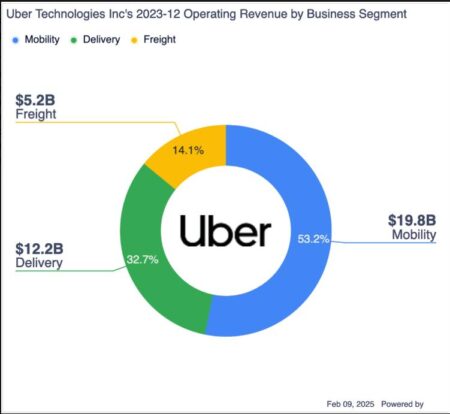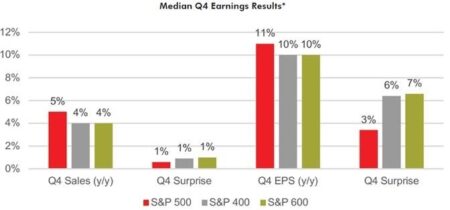Typically voting is thought of as a highly personal decision and practice. And yet, in the world of public markets, most investors that take the time to vote their proxies tend to actually outsource these decisions, or at least, the research behind them, to just two companies: Institutional Shareholder Services (ISS) and Glass Lewis. According to the Wall Street Journal, they have cornered approximately 97% of the proxy voting market, giving them the power to sway voting by as much as 30%. Translating this into electoral politics, it’s as if two companies controlled the electoral college votes for all seven swing states, plus Florida and Texas.
And that means that any major announcement of voting policy changes by these companies has the power to move markets–such as last week’s announcement from Institutional Shareholder Services (ISS) that they will no longer consider race or gender in their board of director recommendations.
Investors controlling trillions of dollars concerned with the well-documented benefits of diversity to corporate performance now need to look elsewhere to protect their investments. This is still possible through more expensive, custom voting options at ISS, or the use of proxy voting tools like Iconik, but adds significant friction to voting that could ultimately interfere with companies getting to an optimal board of director composition from the perspective of enhancing shareholder value.
ISS Policy Change: Diversity Will No Longer Be Considered in Board of Director Election Recommendations
On February 11th, ISS released the following statement:
“Institutional Shareholder Services (ISS) annually conducts a thorough, rigorous, and transparent policy review to consider updates to its Benchmark policy and its Specialty policies for the upcoming proxy season. On an exceptional basis, ISS also considers updates to its policies in light of relevant legal and regulatory changes and/or other emerging issues affecting investors and their portfolio companies.
In the United States, there recently has been increased attention on diversity, equity, and inclusion (DEI) practices, including the issuance last month of Presidential Executive Orders on DEI. We anticipate that institutional investors and U.S. companies will have a range of perspectives on DEI, including whether and how companies can or should adapt their specific policies and practices to the evolving market and governmental activity.
In light of these developments, ISS will indefinitely halt consideration of certain diversity factors in making vote recommendations with respect to directors at U.S. companies under its proprietary Benchmark and Specialty policies. Specifically and for shareholder meeting reports published on or after February 25th, ISS will no longer consider the gender and racial and/or ethnic diversity of a company’s board when making vote recommendations with respect to the election or re-election of directors at U.S. companies under its Benchmark and Specialty policies. Assessments and vote recommendations on directors of U.S. companies will continue to be evaluated under the other considerations outlined in the Benchmark and Specialty voting guidelines (accessible here) including independence, accountability and responsiveness.
ISS will continue to review its Benchmark and Specialty guidelines as appropriate.”
The timing of this announcement raised eyebrows, as it was on the tail of ISS recommending investors vote to maintain DEI policies at Apple just four days prior. It’s raising questions within the investment community as to whether these changes are based on assessments of financial materiality, or more about aligning with political shifts in the country. This in turn raises broader concerns for investors about how proxy voting services like ISS will treat broader DEI issues, climate change, and other issues that sit at the nexus of fiduciary duty and political debate. (ISS did not respond to multiple requests for comment).
Kate Monahan of Trillium Asset Management, an ISS SRI client for over a decade with over $5 Billion in AUM noted, “I am shocked and disappointed they made this change. We are certainly not going to stop voting in favor of DEI given the materiality of the issue and importance to our clients. I am particularly concerned that this announcement happened outside of the standard investor feedback process, raising serious questions about the rigor of internal decision-making processes for such a substantive shift.”
Other investors expressed frustration at both the process and outcome, as reported in the Responsible Investor. The New York City Retirement Systems is a client of ISS, and New York City Comptroller Brad Lander commented on their behalf, “ISS knows that diverse boards helps companies perform better and they have helped build the evidence proving the case. I can only conclude that they are afraid of the increased regulation that the SEC sought to enact during the first Trump Administration. Rather than standing up for independent proxy advice, they are preemptively throwing the value of diverse governance under the bus.”
Why Does Diversity on Corporate Boards Matter?
There are many investors who simply believe that ensuring corporate boards with tremendous societal power represent the gender and ethnic breakdown of the communities they serve is its own intrinsic good. But most conversations have focused less on the values-based motivations often equated with ESG, and more on the financial materiality of diversity to shareholder value creation.
Sticking to the traditional line of thinking that the board of directors of a company is supposed to be fully committed to maximizing shareholder value, numerous studies from pure-play financial actors over the past decade have shown that race and gender diversity in corporate leadership are critical ingredients to maximizing performance:
This reflects the overall trend towards ESG investments for the presumption of enhanced returns. In a 2022 survey from Price Waterhouse Coopers of over 250 asset owners reflecting just under half of global assets under management (AUM), PWC noted they expect over $33 Trillion in ESG products by 2026, and over 20% of global (AUM) by 2027. This report concluded, “Belying questions of whether financial and ESG performance might conflict, nine of ten asset managers surveyed believe that integrating ESG into their investment strategy will improve overall returns. What’s more, a majority of institutional investors, 60%, reported that ESG investing has already resulted in higher performance yields, compared to non-ESG equivalents.”
Where Do Investors Go from Here?
This announcement echoes the broader trend of companies pulling back from DEI, to the consternation of many investors who are worried about how this could impact corporate performance. Similarly, Goldman Sachs announced that they will no longer require companies to have diverse boards at the time of IPO, and other companies like Google and Amazon have back-tracked on DEI in moves an Associated Press/Fortune.com piece characterized as “capitulating to Trump’s war on DEI.”
In response to a request for comment, Goldman Sachs provided a statement from spokesperson Tony Fratto, noting, “As a result of legal developments related to board diversity requirements, we ended our formal board diversity policy. We continue to believe that successful boards benefit from diverse backgrounds and perspectives, and we will encourage them to take this approach.”
Amazon responded noting their commitment to “creating a diverse and inclusive company,” providing a copy of an internal communication from VP Candi Castleberry noting they are “winding down outdated programs and materials” related to DEI. Google did not respond to a request for comment.
For investors who currently use ISS recommendations and want to make sure they continue to factor in diversity’s materiality to corporate boards, it may be necessary to consider custom voting strategies and alternative providers such as As You Vote. Investors can also seek to address DEI through other areas of portfolios such as proactive investment into privately-held companies that value equity and inclusion as part of their human capital strategy.
When politics and fiduciary duty collide, many investors ultimately believe that fiduciary duty must win. Eric Darrisaw, board member of the Interfaith Center on Investor Responsibility, a coalition of 500+ investors managing over $4 Trillion in assets, noted,
“Human capital is not a social issue. It’s a balance sheet issue, and a disclosure issue with serious legal implications for companies. The SEC Human Capital Rule adopted during the Trump administration requires US companies to disclose information related to their human capital management, including workforce diversity. This rule is part of a broader push ensuring that companies report on issues that are deemed material to their financial performance and operations.
Not only does avoiding DEI lead to legal risk, acquiescing to politics and ignoring the materiality of DEI can lead to ESG ratings downgrades for companies seeking access to the over $120 Trillion in capital aligned with the UNPRI signatories. While companies may be trying to follow the political weather, they cannot hide from the reality that DEI is financially material, and therefore must be evaluated and disclosed to investors. Research has decisively shown DEI leads to improved corporate performance, so cannot be ignored as a strategy.
Read the full article here
















